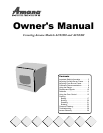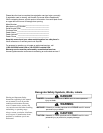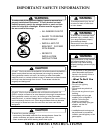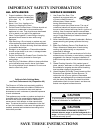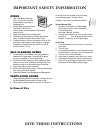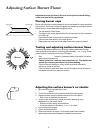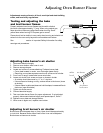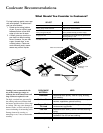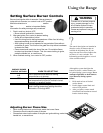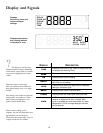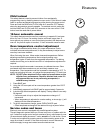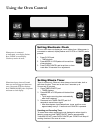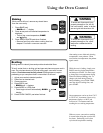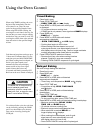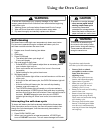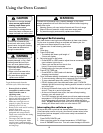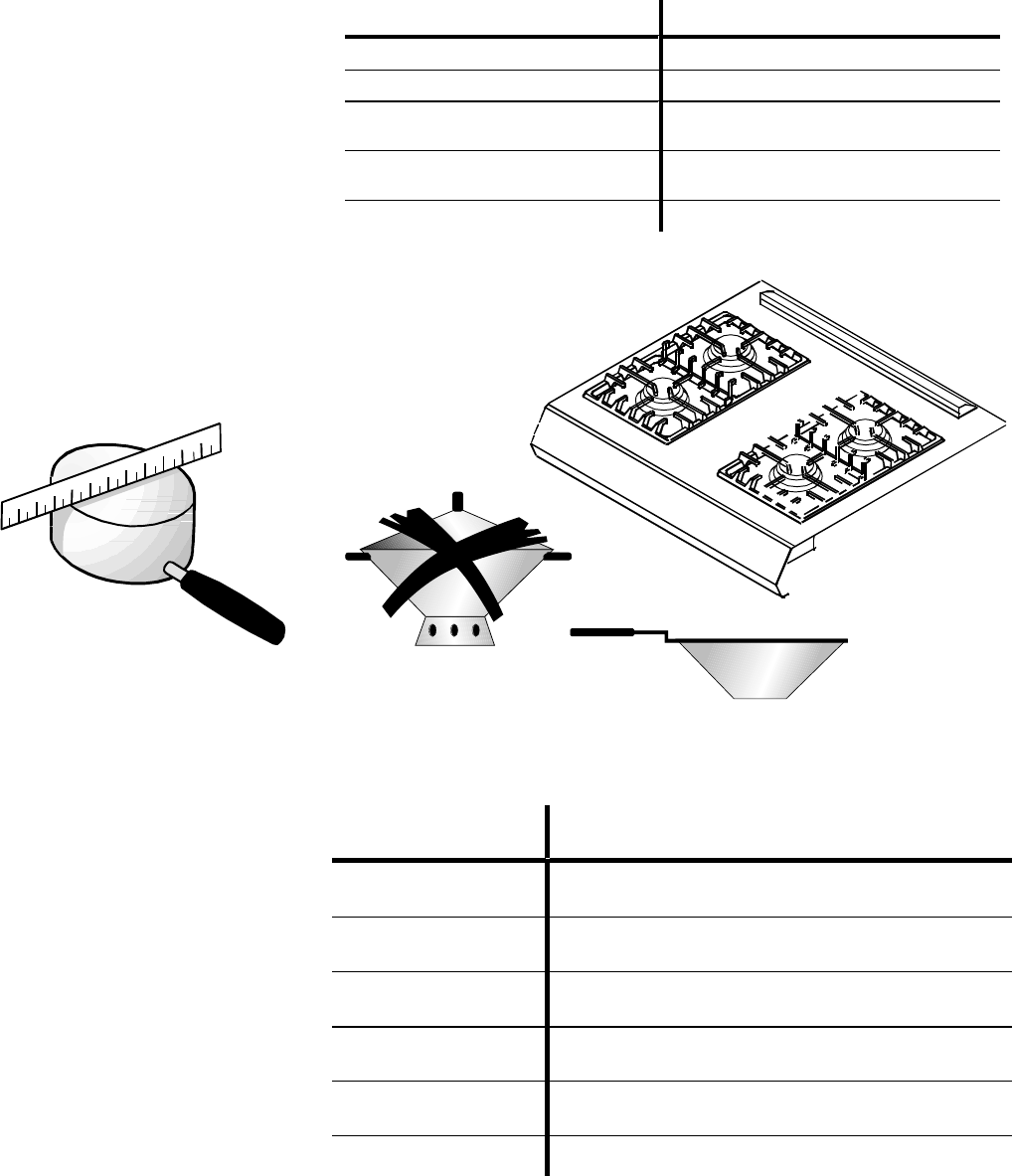
8
Cookware Recommendations
Flat Pan Test
For best cooking results, use a pan
with a flat bottom. To determine if
pan has a flat bottom:
1. Rotate a ruler along bottom
of pan. If pan is not flat, gaps
between bottom of pan and
edge of ruler can be seen.
2. A small groove or mark on a
pan does not affect cooking
times. However, if a pan has
a gap, formed rings, or an
uneven bottom, it does not
cook efficiently and in some
cases may not boil liquids.
Can I can?
Canning is not recommended with
any of the Amana gas ranges or
cooktops due to the intense heat and
large cookware required to can.
The high, sustained heat generated by
the canning cookware overheats both
the burners and the surface of the range
or cooktop. This may cause damage to
burners, knobs, or finish, and may even
cause overheating of surrounding walls.
Damage incurred by canning, or
attempting to can, is not covered under
warranty.
What Should You Consider in Cookware?
SELECT AVOID
Flat bottomed cookware. Cookware with rounded or warped bottoms.
Heavy gauge metal cookware. Light gauge metal cookware.
Handles that are secure, that are not
heavy enough to tilt pan.
Cookware with loose or broken handles or
heavy handles that tip pan when empty.
Proper pan size. Cookware that is smaller than or greater than
burner grate by 1 inch.
Flat bottomed wok Wok with a ringstand on bottom.
COOKWARE
MATERIAL
USES
Aluminum
Heats and cools quickly. Use for frying, braising,
and roasting.
Stainless Steel
Heats and cools at moderate rate. Use for soups,
sauces, vegetables, general cooking.
Copper Clad /
Tin Lined
Heats and cools quickly. Use for gourmet cooking,
wine sauces, egg dishes.
Cast Iron
Heats and cools slowly. Use for low heat cooking,
frying.
Enamelware
Heating speed depends on base metal in the
cookware. Use for low heat cooking.
Ceramic (Glass)
Heats and cools slowly. Use for low heat cooking.
More than 1 inch
overhang
Does not cover burner



